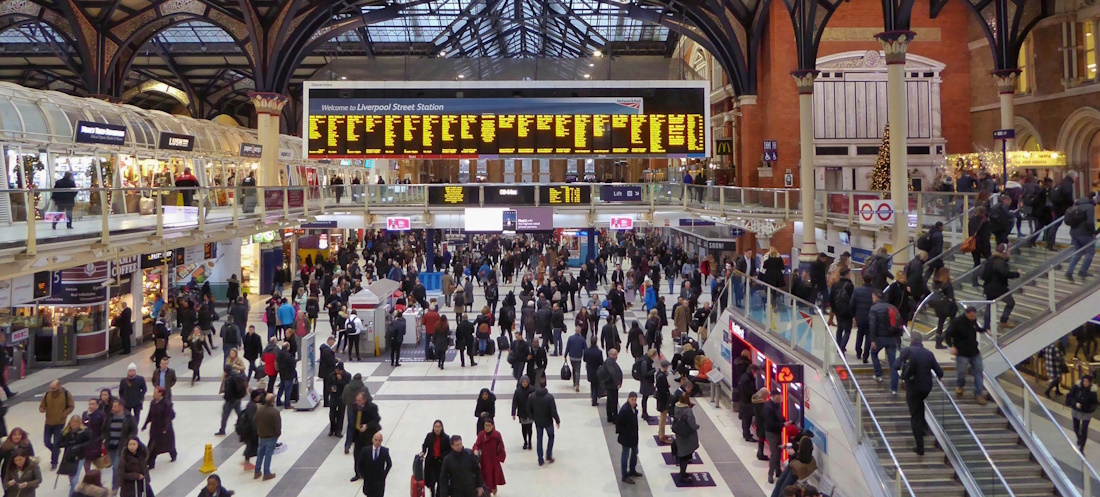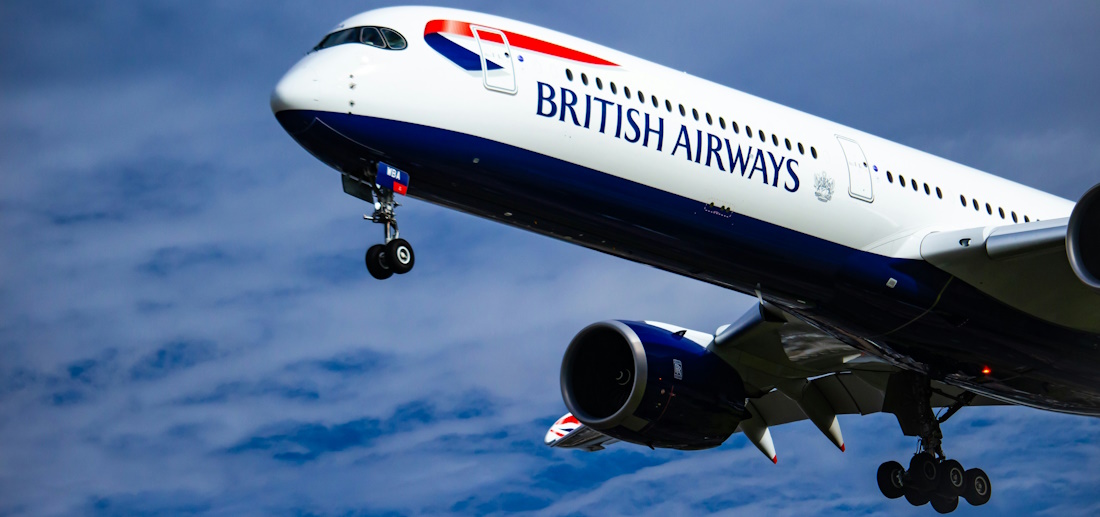- Download our Moving to the UK Guide (PDF)
If you’re moving to the United Kingdom, you will find it reasonably easy to travel nationally. Extensive train and long-distance bus networks make travelling between major destinations straightforward, and the growth of low-cost airlines in Europe has made flying a viable option.
While owning a car is not essential, you will find that the condition of the roads and infrastructure is excellent and that getting around the United Kingdom by car can be a real pleasure.
Public transport in the United Kingdom

Trains
Trains are the most popular mode of public transport in the United Kingdom. National Rail operates the railway network that covers England, Scotland and Wales, and Northern Ireland Railways is responsible for the train network in Northern Ireland.
While National Rail oversees the railways in mainland Britain, you will find that there are numerous companies offering train services as a result of privatisation.
Despite some criticism about network delays and overcrowding during peak hours, travelling by train is generally a fast, enjoyable way to get around and see the country.
Train tickets can be purchased at any train station or online, usually at the same price regardless of which train operator commuters use. That said, cheaper tickets may carry restrictions, and some services stop at more places or take a longer route to reach their final destination.
You can also save money on train fares by booking tickets in advance or using a discount card such as the Student Rail Card (for 16 to 25-year-olds) or the Senior Rail Card (for those over 60).
If you travel by train regularly, it’s worth investing in a season ticket, which is valid for either a week, a month or a year. Prices of a season ticket depend on the routes travelled.
Buses and coaches
Long-distance buses in the United Kingdom are commonly referred to as coaches. Travelling by bus will typically take longer than the equivalent journey on a train due to traffic. Like trains in the United Kingdom, long-distance buses tend to take passengers right into the centre of town.
The leading bus service provider in the UK is called National Express and serves all major destinations in the UK. Megabus is an alternative service provider that covers a limited number of the major cities, but it’s inexpensive and popular among students.
Travelling by bus is fairly comfortable and services are rarely fully booked. The main benefit of travelling by bus in the United Kingdom is cost. Bus fares are often less than half of what one would pay for the equivalent train journey, especially if you book them in advance or on a special offer. Tickets can either be bought online or at bus terminals.
Useful links
Taxis in the United Kingdom
Taxis are readily available in the United Kingdom. There are two types: metered black cabs that can be hailed in the street and found in all larger towns and cities, and minicabs, which usually must be pre-booked online or over the phone.
Ride-hailing applications like Uber are also operational throughout most of the country.
Taxis in the United Kingdom can be expensive and should be reserved for travelling short distances within the city centre, late at night or with a group of friends.
When using a taxi in the United Kingdom, you should always check that the driver’s taxi licence number is displayed on the dashboard and that the meter displays the correct rate.
Useful links
Driving in the United Kingdom
Owning a car isn’t strictly necessary in the United Kingdom. In fact, it will be of little benefit if you spend most of your time in one city, which will likely have comprehensive public transport. That said, having a car can be helpful when it comes to getting around the country and exploring the countryside.
Unlike the rest of Europe, the UK drives on the left-hand side of the road. Most cars in the UK are manual transmissions, so you will need to specifically request an automatic vehicle if you require one.
The standard of roads and signage in the United Kingdom is excellent, with very few toll roads. Driving standards in the UK are good, and the country’s roads are considered among the safest in Europe.
Parking can be expensive and difficult to find, especially in London. Petrol is heavily taxed in the UK, and expats from the Middle East and the USA will find that prices are higher than at home.
Traffic can be a problem, especially during rush hour, and several cities in the United Kingdom have park-and-ride schemes to try to alleviate congestion. These car parks are mainly located at the edge of a city, with cheap buses provided to transport commuters to the city centre, and the schemes are a great option in major cities as they save on the cost of parking fees, petrol and time.
Expats in the UK can drive on their licence from home for 12 months, assuming they are citizens of a non-EEA country. Meanwhile, EEA expats will only need to replace their licence once it expires.
Useful links
Domestic flights in the United Kingdom

With the growth of low-cost airlines in Europe, it has become possible for people to fly to and from all the UK’s major cities.
Major airports can be found in London, Birmingham, Manchester, Liverpool, Newcastle, Edinburgh, Glasgow, Aberdeen, Inverness, Cardiff and Belfast.
Flight prices fluctuate constantly but are usually reasonable when booked in advance, and domestic carriers like Easy Jet and Ryanair often run special offers.
While flying is the fastest way of travelling across the UK, you should note that because most airports are located on the outskirts of a city, you’ll probably have to take a bus or train to the city centre after arriving at your destination. This, combined with the fact that passengers need to check in 90 minutes ahead of time for domestic flights, means that, in reality, it could be faster to travel by train.
Useful links
Cycling in the United Kingdom
The standard of infrastructure for cyclists in the United Kingdom is variable and depends on location. Most cities in the UK have designated cycle lanes, which drivers sometimes ignore. One may find split pavements shared by pedestrians and cyclists on major roads. Bicycle parking is available in most cities and is frequently free of charge. Bicycles are only permitted on certain train services.
Useful links
What do expats say about public transport in the UK?
"Public transit, despite how much people moan about it, is much better than it is in Canada. While trains can often be late, it is usually by minutes and not a huge inconvenience." For more insights from Allison, a Canadian living in Manchester, read her interview with Expat Arrivals.
Further reading
►Moving to the United Kingdom with children? Education and Schools in the United Kingdom page is essential reading
►Use the Cost of Living in the United Kingdom page to plan out your budget before moving
Photo credits: Liverpool Street Station by Belinda Fewings, British Airways Plane by Isaac Struna, both on Unsplash.
Are you an expat living in The United Kingdom?
Expat Arrivals is looking for locals to contribute to this guide, and answer forum questions from others planning their move to The United Kingdom. Please contact us if you'd like to contribute.
Expat Health Insurance
Cigna Global Health Insurance.
Medical insurance specifically designed for expats. With Cigna, you won't have to rely on foreign public health care systems, which may not meet your needs. Cigna allows you to speak to a doctor on demand, for consultations or instant advice, wherever you are in the world. They also offer full cancer care across all levels of cover, and settle the cost of treatments directly with the provider.
Moving Internationally?
International Movers. Get Quotes. Compare Prices.
Sirelo has a network of more than 500 international removal companies that can move your furniture and possessions to your new home. By filling in a form, you’ll get up to 5 quotes from recommended movers. This service is free of charge and will help you select an international moving company that suits your needs and budget.
Get your free no-obligation quotes from select removal companies now!


